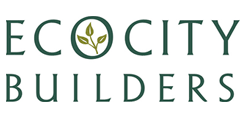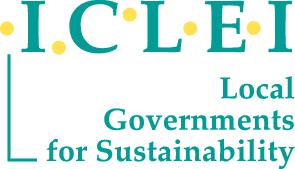Principles for Better Cities
The ECOCITY World Summit series focuses on key actions that cities and citizens can take to rebuild our human habitat in relation to living natural systems. In the process we seek to slow down and reverse climate change and biodiversity collapse, the loss of wilderness habitat, agricultural lands and open space, and the extension of social and environmental injustices.
The ECOCITY World Summit aims to unite people through a new way of living on the planet that produces flourishing cities while enhancing the biosphere.
This process has ecological, economic, political and cultural consequences that will entail changes to the way in which we live. They can be expressed as high-level principles:
Ecology: Cities should have a deep and integrated relationship with nature.
Economics: Cities should be based on an economy organized around social needs.
Politics: Cities should have an enhanced emphasis on engaged and negotiated civic involvement.
Culture: Cities should actively develop ongoing processes for dealing with the uncomfortable intersections of identity and difference, including the current tension between culture and nature.
(See below for a practical elaboration of these principles.)
Affirmations
The ECOCITY World Summit affirms that urban design, planning, building and maintenance must respond creatively, appropriately and effectively to the relationship between the social and the natural at both the local and global levels. It holds at its core the protection of large and richly functioning forests, grasslands, wetlands, open waters, and glaciers.
We affirm considerations such reducing both local and global ecological footprints, and adjusting creatively and rigorously to the limits imposed by living on a finite planet. All these considerations are basic to our programs and guide our conference design and development process, selection of presenters, panellists, workshops, tours and exhibits.
We affirm the need for meaningful change as opposed to empty agreements and declarations. To this end, we emphasize the need for a balance of large and important transformational tasks and smaller, tangible steps. We seek solutions across different spatial scales—from the single practical change that may contribute to healthier built communities, to redesigns of a whole city system; from the small ecovillage and ecotown to the ecocity.
We affirm that the ECOCITY World Summit series aspires to provide the best information to its participants, relevant to their interests. The series aims to connect people of a wide variety of backgrounds, disciplines and cross-cutting projects. It strives to a voice to individual citizens and community practitioners as well as to government, municipal leaders and intellectual scholars. Our chief objective is to facilitate partnerships and collaborations that help to build and run the flourishing ecocities of the future.
Principles in Practice
These ‘principles in practice’ build upon the high-level principles laid out above without being a mandated blue-print. They provide a global template for discussion, for changing in relation to local considerations, and for acting upon in local cities.
Ecological Principles
Urban settlements should have a deep and integrated relationship with nature:
1. With urban settlements organized around locally distributed renewable energy, planned on a precinct-wide basis, and with existing buildings retrofitted for resource-use efficiency;
2. With waterways returned as much as possible to their pre-settlement condition, flanked, where possible, by indigenous natural green-spaces re-established along their edges;
3. With green parklands—including areas which provide habitat for indigenous animals and birds— increased or consolidated within the urban area, connected by further linear green ribbons;
4. With urban settlements organized into regional clusters around natural limits and fixed urban-growth boundaries to contain sprawl and renew an urban-rural divide; and with growth zones of increased urban density within those urban settlements focussed on public transport nodes;
5. With paths for walking, lanes for non-motorized vehicles, and corridors for sustainable public transport, given spatial priority over roads for cars; and with those dedicated paths networked throughout the city;
6. With food production invigorated in the urban precinct, including through dedicated spaces being set aside for commercial and community food gardens; and
7. With waste management directed fundamentally towards green composting, hard-waste recycling and hard-waste mining.
Economic Principles
Urban settlements should be based on an economy organized around social needs rather than growth:
1. With production and exchange shifted from an emphasis on production-for-global-consumption to an economics-for-local-living, including ontologically different forms of exchange;
2. With urban financial governance moved towards participatory budgeting on a significant proportion of the city’s annual infrastructure and services spending;
3. With regulation negotiated publicly through extensive consultation and deliberative programs, including an emphasis on regulation for resource-use reduction;
4. With consumption substantially reduced and shifted away from those goods that are not produced regionally or for the reproduction of basic living—food, housing, clothing, music and so on;
5. With workplaces brought back into closer spatial relation to residential areas, while taking into account dangers and noise hazards through sustainable and appropriate building;
6. With technology used primarily as a tool for good living, rather than a means of transcending the limits of nature and embodiment; and
7. With the institution of re-distributive processes that break radically with current cycles of inter-class and inter-generational inequality.
Political Principles
Urban settlements should have an active emphasis on engaged and negotiated civic involvement:
1. With the governance conducted through deep deliberative democratic processes that bring together comprehensive community engagement, expert knowledge, and extended public debate about all aspects of development;
2. With legislation enacted for socially just land-tenure, including, where necessary, through municipal and state acquisition of ecologically, economically and culturally sensitive areas;
3. With public non-profit communication services and media outlets materially supported and subsidized where necessary;
4. With political participation and representation going deeper than electoral engagement;
5. With basic security afforded to all people through a shift to human security considerations;
6. With reconciliation with Indigenous peoples becoming an active and ongoing focus of all urban politics; and
7. With ethical debates concerning how we are to live becoming a mainstream requirement at all levels of education and in all disciplines from the humanities to medicine and engineering.
Cultural Principles
Urban settlements should actively develop ongoing processes for dealing with the uncomfortable intersections of identity and difference, including the current tension between culture and nature:
1. With careful public recognition of the complex layers of community-based identity that have made the urban region what it is, including cross-cutting customary, traditional, modern and postmodern identities.
2. With the development of consolidated cultural activity zones, emphasizing active street-frontage and public spaces for face-to-face engagement, festivals and events—for example, all new commercial and residential apartment buildings should have an active ground floor, with part of that space zoned for rent-subsidized cultural use such as studios, theatres, and workshops;
3. With museums, cultural centres and other public spaces dedicated to projecting the urban region’s own cross-cutting cultural histories—public spaces which at the same time actively seek to represent visually alternative trajectories of urban development from the present into the future;
4. With locally relevant fundamental beliefs from across the globe (except those that vilify and degrade) woven into the fabric of the built environment: symbolically, artistically and practically;
5. With conditions for gender equality pursued in all aspects of social life, while negotiating relations of cultural inclusion and exclusion that allow for gendered differences;
6. With the possibilities for facilitated enquiry and learning available to all from birth to old age across people’s lives; and not just through formal education structures, but also through well-supported libraries and community learning centres; and
7. With public spaces and buildings aesthetically designed and actively curated to enhance the emotional wellbeing of people, including by involving local people in that design and curation.
Principles for Organizing the Summit
Ecological Principles
The Summit should be organized with deep awareness of ecological consequences of running a major international gathering:
1. With the conference venue chosen for its resource-use minimization, including energy-efficient lighting and renewable energy-sourcing;
2. With the conference venue chosen for it sustainable treatment of water, including solar water heating and sustainable sanitation systems;
3. With the conference held in proximity to green parklands—including areas which provide habitat for indigenous animals and birds;
4. With the conference held in an urban centre, close to accommodation and public infrastructure to reduce carbon-emitting transport and to enhance walkable access;
5. With global and national air transport to the conference based on carbon offsetting;
6. With food provision for the conference based on careful consideration of local supply, seasonality, and other sustainability considerations; and
7. With conference waste-management organized through green composting and hard-waste recycling.
Economic Principles
The Summit based on an economy of engagement rather than one of accumulation of surplus value:
1. With the food and beverages produced for the conference sourced through local farmers, viticulturists, and other primary producers;
2. With transparent budgeting that includes the reinvestment of surplus funds back into projects associated with learning for sustainability;
3. With the economic regulation of the conference based on careful auditing and review;
4. With an emphasis on decreasing all unnecessary consumption of materials and resources;
5. With all staff, except for volunteers, employed according to negotiated labour agreements;
6. With technology used appropriately and sustainably as a tool for learning; and
7. With active attention to making the cost of the conference attuned to variable economic capacities to pay, breaking radically with generic user-pays principles.
Political Principles
The Summit should be organized with an active emphasis on engaged and negotiated involvement beyond the immediate organising committee:
1. With the governance of the conference organized so as to maximize participation while recognizing the importance of clear lines of authority and responsibility;
2. With attentiveness to questions of social justice, both in the content of the conference proceedings and its management;
3. With an active emphasis on constructive critique that recognizes the complexity of social change;
4. With representation welcomed from a wide political spectrum of constituencies without this openness being reduced to the management of political balance;
5. With all participants assured a secure sense of respect for personal wellbeing, health and safety;
6. With active dialogue over differences in relation to any public communication of findings and conclusions; and
7. With clear ethical accountability in relation to all conference management decisions.
Cultural Principles
Urban settlements should actively develop ongoing processes for dealing with the uncomfortable intersections of identity and difference, including the current tension between culture and nature:
1. With positive engagement in the conference sought from across different cultural groupings;
2. With an extension of the conference programing to include creative presentations and re-creative activities;
3. With an active recognition of the indigenous past and complicated history of the land on which the conference is held;
4. With an openness to and encouragement of different beliefs and ideas;
5. With an attentiveness to questions of gender equity and cross-generational participation; and
6. With an emphasis on open enquiry, critical learning, and engagement across lines of difference.
* For those interested in the framework that organizes the principles we are using the Circles of Social Life matrix to provide a comprehensive and integrated set of domains and subdomains of sustainability and social flourishing:
Social Domains and Subdomains
|
Economics 1. Production and Resourcing |
Ecology 1. Materials and Energy |
|
Politics 1. Organization and Governance |
Culture 1. Identity and Engagement |
For an elaboration of this framework see www.CirclesofSustainability.org










